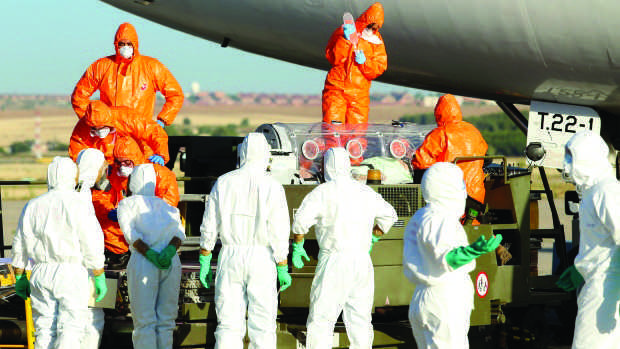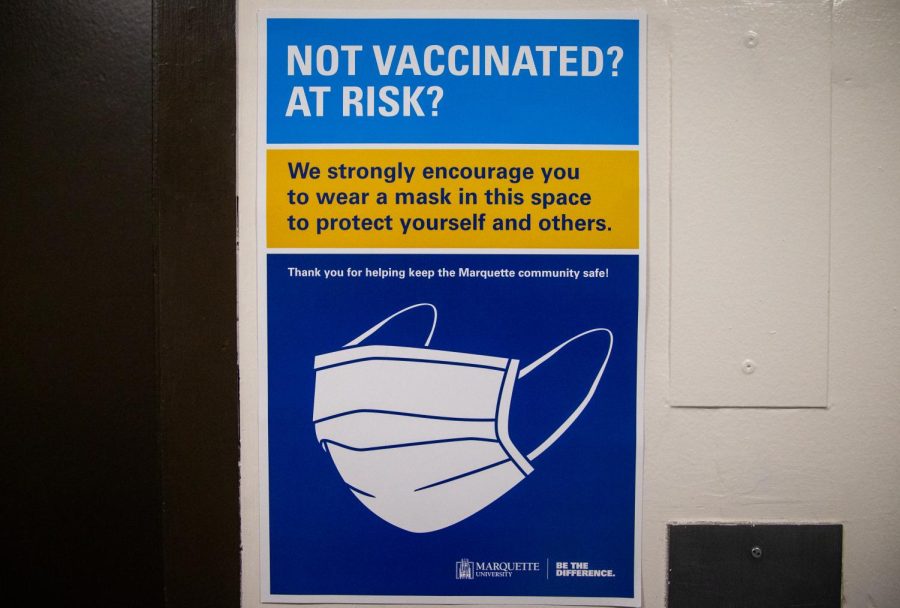Marquette recently issued a travel warning that prohibits students, faculty and staff from traveling to countries affected by Ebola until the disease is brought under control.
This means students or faculty participating in international educational activities are not allowed to travel to countries issued a travel warning or alert by the Centers for Disease Control. That includes Guinea, Liberia and Sierra Leone, Nigeria and the Democratic Republic of the Congo.
Although the World Health Organization officially reported about 5,000 deaths as a result of the outbreak in Western Africa — with real numbers believed to be closer to 15,000 — healthcare professionals across the country are reminding Americans that the threat of an outbreak at home is unlikely.
Concerns about the disease have been fueled by the media covering the outbreak in Africa and recent cases in the U.S.
Two nurses from Dallas tested positive for the disease while caring for a man who was infected while in Liberia and who died on Oct. 8 as a result.
One nurse, Nina Pham, was upgraded to good condition Tuesday, NBC News reported. The other nurse, Amber Vinson, has been declared free of the Ebola virus as of Wednesday evening, according to multiple media sources.
In response, politicians, including Speaker of the House John Boehner, have called for travel bans to affected areas.
According to the CDC, the virus is spread primarily through direct contact with bodily fluids, like blood. It cannot be spread through the air, water or food, but can be contracted by touching objects contaminated by bodily fluids, like needles.
Still, it is always better to be safe than sorry. Plans have been put in place on both a state and university level to ensure the proper response to a case on Marquette’s campus. In the highly unlikely situation that Ebola were to come to Marquette, the person would be isolated and transported to a medical facility where they would be treated.
“All health care providers and health care systems in the state, including here at Marquette and at Aurora Sinai, have been or are being trained to identify, isolate, and inform,” said Dr. Carolyn Smith, executive director of the campus medical clinic, in an email.
“We would work with all campus partners to identify the potential patient,” Smith continued. “Once identified, the city and state health department would be immediately notified and plans would be made to transport the patient to an appropriate facility for testing and treatment. Until transport, the patient would be isolated. The health department would then begin to identify contacts for risk assessment and symptom surveillance.”
Experts agree that the virus is likely not going to spread out of control in the U.S., as it is not as infectious as many other diseases.
“A far greater risk is influenza, which kills upwards of 36,000 individuals annually and hospitalizes 100,000,” Smith said. “Otherwise healthy individuals are far more likely to come in contact with someone with the flu than an Ebola patient. Protecting yourself against influenza with a flu vaccine should be a priority.”
Kari Hinterlong, a sophomore in the College of Health Sciences, said she thinks the panic surrounding the disease has calmed down recently.
“I feel like there’s a very slim chance that it comes here but I don’t feel worried about it,” Hinterlong said. “I wouldn’t know how to prepare for it, but I feel like now that there has been a case (in the U.S.), there are more resources and information for people to protect themselves.”






